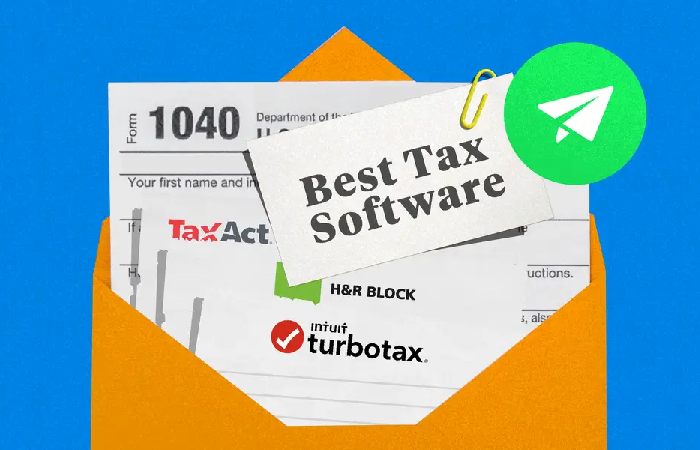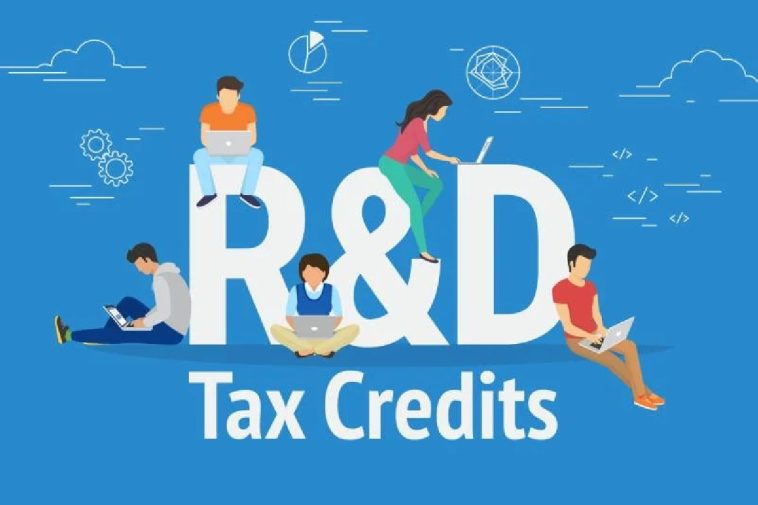The Rd Tax Credit Software for Beginners – The Earned Income Tax Credit (EITC) is a refundable tax credit for low- and moderate-income working individuals and families. The EITC can help you reduce your tax liability or get a refund, even if you don’t owe any taxes.
You can claim it on your federal income tax return if eligible for the EITC. There are several different software programs available that can help you claim the EITC. Some of these programs are specifically designed for beginners, making them a good option if you are new to the EITC or have never claimed it.
Here are Some of the Top-Rated EITC Software Programs for Beginners:

- FreeTaxUSA
- H&R Block Tax Software Deluxe
- TurboTax Free Edition
- TaxAct Free Edition
These programs are easy to use and have features that can help you claim the EITC, such as step-by-step instructions, calculators, and tax tips. They also offer free tax preparation for eligible taxpayers.
To determine if you are eligible for the EITC, you can use the IRS’s EITC Assistant tool. This tool will ask you a series of questions about your income, family size, and also other factors to determine if you are eligible.
You can claim it on your federal income tax return if eligible for the EITC. The EITC is a valuable tax credit that can help you reduce your tax liability or even get a refund. Using one of the top-rated EITC software programs for beginners, you can easily claim the EITC and get the money you own.
Here is Some Additional Information About the EITC:
- The EITC is a refundable tax credit, meaning you can get a refund even if you don’t owe any taxes.
- The amount of the EITC you can claim depends on your income, family size, and filing status.
- You can claim the EITC on your federal income tax return.
- There are several different software programs available that can help you claim the EITC.
- Some of these programs are specifically designed for beginners.
- To determine if you are eligible for the EITC, you can use the IRS’s EITC Assistant tool.
- If you are eligible for the EITC, I encourage you to claim it. The EITC is a valuable tax credit that can help you reduce your tax liability or even get a refund.
The R&D Credit Made it Easy.
The R&D tax credit is a tax incentive for businesses conducting research and development (R&D). The distinction encourages companies to invest in R&D, which can lead to new products, services, and technologies.
The R&D tax credit is available to businesses of all sizes, regardless of industry. Companies must conduct R&D that meets specific criteria to be eligible for the credit. The requirements vary depending on the type of R&D activity, but generally, businesses must demonstrate that their R&D activities are:
Original and innovative
Technological in nature
Conducted to develop new or improved products, services, or processes
The amount of the R&D tax credit is based on the amount of money the business spends on R&D. The credit is equal to 20% of the qualified R&D expenses, up to a maximum of $250,000 per year.
The R&D tax credit can be claimed on the business’s federal income tax return. The credit can be used to offset the business’s tax liability, or it can be refunded if the credit exceeds the business’s tax liability.
The R&D tax credit is a valuable tax incentive for businesses that engage in R&D. The credit can help companies offset the costs of R&D and provide a financial boost for companies that are developing new products, services, or technologies.
If a business engages in R&D, you should consider claiming the R&D tax credit. The credit can help you to save money on your taxes, and it can also help you to grow your business.
Here are some Additional Tips for Claiming the R&D Tax Credit:
- Keep good records of your R&D activities. It includes documentation of your research goals, methods, and results.
- Consult with a tax professional who is familiar with the R&D tax credit. They can help you determine if you are eligible for the recognition and calculate the amount of credit you can claim.
- The R&D tax credit is a complex tax incentive. Still, it can be a valuable asset for businesses that engage in R&D. By following the tips above. You can ensure that you are claiming the credit correctly and also getting the most out of it.
- When choosing an R&D tax credit software program, it is essential to consider the following factors:
- The program’s ease of use
- The program’s features
- The program’s cost
- Ensuring the program is compatible with the business’s accounting software is also essential.
- Once a program has been chosen, the business should gather all necessary documentation to support its claim. This documentation includes the following:
- Documentation of the research goals, methods, and results
- Documentation of the expenses incurred for the research
- The business should then follow the instructions of the software program to claim the credit.
- Claiming the R&D tax credit can be a complex process, but it can be a valuable asset for businesses that engage in research and development. By following the tips above, companies can ensure they are claiming the credit correctly and getting the most out of it.
Here are Some Additional Resources that Businesses May Find Helpful:
- IRS Publication 535, Business Expenses
- IRS Form 6765, R&D Tax Credit
- R&D Tax Credit Software Directory
Conclusion: The Rd Tax Credit Software for Beginners
The Rd Tax Credit Software for Beginners – The R&D tax credit is a valuable tax incentive for businesses that engage in research and development. However, the glory can be complex to claim, and companies new to the recognition may need some help.
There are several different R&D tax credit software programs available that can help businesses claim the credit. Some of these programs are specifically designed for beginners, making them a good option for companies that are new to credit or have never claimed it.

